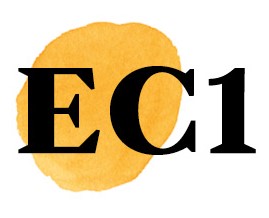This year’s theme was ordinary people, as a reminder that those who suffered, and the perpetrators, were just that.
By Julia Gregory, Local Democracy Reporter

“The survivors of the Holocaust entrusted their stories to us, the second generation, and it is up to us all to all to remember and listen so we can build a better life,” Ros Gelbart said at a Holocaust memorial day event Islington Assembly Hall in Islington on Friday (27th January)
This year’s theme is ordinary people, as a reminder that those who suffered, and the perpetrators, were just that.
Ms Gelbart’s father, David Herman, grew up in the former Czechoslovakia, until the Nazis rounded up Jewish families and sent them to concentration camps.
“My father remembered vividly the moments when the train doors were flying open when they arrived at Auschwitz- Birkenau. There were lights everywhere and barking dogs.
“It was the last time he saw his mother.”
He was just 15 years old and lived in horrific conditions in the concentration camp until near the end of the war. Three thousand people were forced to march to the Theresienstadt camp without food. They were forced to eat snow to survive, Just 319 people made it.
On their way, people in one town threw food to them and “my father realised there were people who cared.”
When liberation came, he weighed just 4 stone He was seriously ill with dysentery and typhus and had lost his hair and even his eyelashes due to the appalling conditions.
He eventually came to England as part of a group of Jewish orphans who survived the horrors of the Holocaust. They were known as “The Boys”.
“My father was never bitter.
“He used to say ‘hello, you lucky people’ when he entered a room . I think you can imagine why he would think we were lucky,” said Ms Gelbart.
Towards the end of his life, he returned to Auschwitz in “an act of defiance” and started to talk about his experiences to prevent it ever happening again.
The event on the anniversary of the liberation of Auschwitz also remembered those murdered in other genocides, including Cambodia, Rwanda, Bosnia and Darfur.
Islington South and Finsbury MP Emily Thornberry challenged the audience at Islington Assembly Halls to stand up to prejudice.
“A word is said, nastiness is passed. Do you have the bravery to stand up and say that’s not acceptable?
“We have to stand together and we have to remember there is no other. There is only us.”
Council leader Kaya Comer-Schwartz spoke about her grandfather Paul who survived the Dachau concentration camp, because he was a trained baker.
“My grandfather was an ordinary man who loved us.
“But ordinary people did the killing too.
“Ordinary people lost their lives in the atrocities, but ordinary people did it to them. We have to take an active choice to stand up for other people’s differences.”
Alexandru Silaghi from the Roma community in Romania shared the story of his grandfather Francisc Bandusan’s life during the Second World War, and his time in a concentration camp.
“He chose not to share all his sufferings with us, he wanted to protect our childhood.”
He said it was important to be aware of what happened to prevent hatred harming others.
The event included music by Django Reinhardt, performed by the World Harmony Orchestra, whose musicians include refugees from around the world. It included Nuage, or Clouds, which became the anthem of the French resistance during World War Two.









